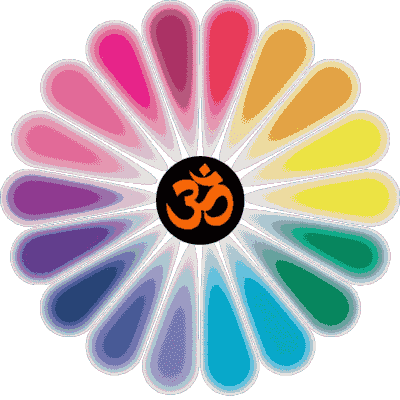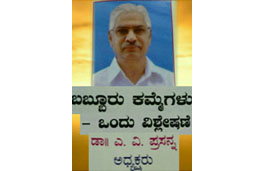Donation Form
Please fill in the following details to Donate:-
Thank you, we appreciate your support.
"Note: - Permanent Account Number (PAN) is mandatory for Donation above Rs.2,000 /= ."
About Babboorkamme
The Babboorkamme (Devanagiri: बब्बूर्कम्मे, Kannada: ಬಬ್ಬೂರುಕಮ್ಮೆ alternate English spellings: “Babburkamme”, "Bobburukamme", "Babboor Kamme") community is a caste of Smarta Brahmins whose members mainly reside in Karnataka and Tamilnadu states in India. There also exist sizeable populations of the community in other countries like USA, Canada, UK, Australia and New Zealand…etc. Babboorkammes are followers of the Smarta tradition. Smarta tradition is closely associated with the Advaita tradition of Sri Adi Shankaracharya. Kamme is said to have derived from 'Karmin' meaning those who practice "Vaidhika Dharma", but this version is disputed by scholars like Dr.M.M.Kalburgi, according to whom the term ‘Kamme’ refers to the ‘Kamme Nadu’ in Andhra Pradesh.
Origin
The Kamme community is as old as 800 AD. The place of origin of Babboorkammes is unclear, although most accounts believe that they migrated from the village of Babbur in Andhra Pradesh, close to Orissa. Another version is they have migrated from a place called 'Barabara' in central province of India. Another version has it that a small group migrated from the central provinces, following the path set by Babur on one of his incursions, and the name is hence derived. According to one published source, the Kamme community migrated south through Andhra Pradesh over a long period, where one part of the community settled. Today they are known as "UluchuKamme" with Telugu as their mother tongue. The other part of the community further migrated through Vijayanagara Kingdom towards Southern Karnataka and Tamilnadu. However, it is noteworthy that there was no village by name “Babbur” in Andhra Pradesh at all. Now it is established that the origin of the term ‘Kamme” is the famous “Kammenadu” in Andhra Pradesh as praised by many great poets like Ponna, Ranna, …etc. It appears that the principal profession was priesthood, and the migration pattern reflects the various Hindu kingdoms and economic centres of their times. Over the last 100 years, the local migration appears to be from small-towns to Mysore and Bangalore, and in recent years to other parts of the world. This trend seems to be coherent with migration patterns of other service-providing communities in the region. Babboorkammes are largely spread in Holenarasipura, Channarayapattana, Konanur, Arkalgud, Bellur, Kanakatte, Mirle, Arasikere, Belavadi, Mayasandra, Bettadapura, Davanagere, Shivamogga, Hassan, Chikkamagaluru and Bhadravati towns in Karnataka state and Coimbatore & Salem in Tamil Nadu. Community sanghas are spread across Karnataka state in places like Bangalore, Mysore, Bhadravathi, Tumkur, Mandya, Shivamogga, ….
Social Structure
Babboorkammes place strong emphasis on education that applies to both men and women (a saying in Kannada emphasizes this: "KammeandreHemme" - translating to "Kamme means Pride"). Due to their history, most people in the community do not have significant ancestral land or other fixed assets (unlike the business or warrior communities, for example) and therefore formal education is seen as a pathway to success. In addition, and perhaps as a result of advanced education, the community is quite progressive in its outlook.
Religious Beliefs
Babboorkammes are Brahmins by caste and follow the SmartaAdvaita Vedanta philosophy of Adi Shankaracharya. Most Babboorkammes are followers of the Sringeri Shankaracharya Peetha established by Sri AdiShankara. Depending on the tradition of the family, there is a specific form of God that is revered known as Ishta Deva (Family Deity). The main deity of Babboorkammes is dependent on the family deity or Ishta-deva. These deities can be Shiva-Shakti,Banashankari, Laxmi-Narayan. However, being followers of AdvaitaSmartism, Babboorkammes worship all the major forms of God including, Shiva, Vishnu, Ganesha, Gowri, Saraswati, Laxmi, Durga, and Karthikeya. Major festivals celebrated by Babboorkammes are Ugadi, Navaratri, Deepavali and Ganesha Chaturthi.
Famous Babboorkammes
Many great rulers, thinkers, poets, lawyers, doctors, teachers and sportsmen are from Babboorkamme community. The earliest evidence of a BabburKamme personality comes from Vasubhaga Bhatta ( 8th Century AD ) who is the author of a version of the Sanskrit stories "Panchatantra", whose popularity spreads across the Southern hemisphere including Japan, Indonesia, Malaysia etc. Vasubhaga Bhatta proudly calls himself a "BobbooruKamme Brahmin" (this is documented by Durgasimhain 12th century AD in his work "Karnataka Panchatantram"). It is recorded that the great Saint Basaveshwara(Founder of Lingayat community) was from this community. The founder of the Vijayanagara empire, Shankaracharya Sri Vidyaranya belonged to this community. It is also believed that he brought many brahmins from his community to settle in Karnataka. Later his brothers Madhavacharya and Sayanacharya have contributed to Indian spiritualogy by documenting the entire Vedas & Upanishads for the first time (hitherto it was spread from guru to shisya by memorizing). Max Mueller and Swami Vivekananda have applauded the efforts of Sayanacharya in preserving the great heritage of Sanathana Dharma. Late Dewan Bahadur Kikkeri Ramaswamy - He was the principal engineer involved in the construction of the "Gateway of India" in Mumbai. His name has an honorary mention on the monument. The Mysore Maharaja conferred the title Dewan Bahadur and he was a trusted confidant of the royal family. He was also involved in the pre-independence infrastructure projects in Mumbai (roads) and was popularly known as 'Bombay Ramaswamy'. His house in Bangalore still carries the name "Bombay House" in his memory. The BabboorKamme Seva Samithi (BKSS), Bangalore has published a book on the life and achievements of around 200 Prominent/Famous personalities of our Babboorkamme community. Please refer the book “ಬಬ್ಬೂರುಕಮ್ಮೆಪ್ರತಿಭಾಸಂಪನ್ನರು”, it is available in our samithi office. Regarding the historical background and other details of Babboorkammes (Babburkamme), please click on the below link "ಬಬ್ಬೂರುಕಮ್ಮೆಗಳು- ಒಂದುವಿಶ್ಲೇಷಣೆ" by Dr.A.V.Prasanna. All the previous books, articles published on this subject and old kannada literatures and inscriptions are cited in this article to establish the correct meaning of the term 'Babbur' & 'Kamme'.


